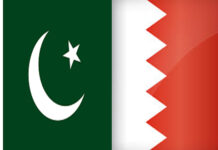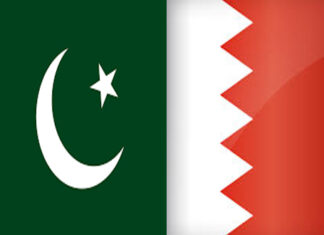Women scientists, early-career researchers, and global health experts from across South and Central Asia gathered today at the Supporting Women in Science (SWIS) Conference 2025, hosted by Aga Khan University’s (AKU) Institute for Global Health & Development (IGHD) in collaboration with the University of Oxford.
Now in its third year, the SWIS Programme has rapidly become one of the region’s most significant initiatives for advancing women’s scientific leadership. Since its launch in 2022, the programme has received nearly 700 applications from around the world and currently supports 84 fellows across nine countries. SWIS provides mentorship, leadership development, research support, and scientific training in critical fields including maternal and child health, climate resilience, nutrition, adolescent well-being, and health systems strengthening.
The 2025 conference marks the culmination of Phase III of the programme, bringing together fellows from Pakistan, Afghanistan, Bangladesh, Nepal, India, and Central Asian nations to present their research, strengthen cross-border collaborations, and engage with senior academics and policymakers.
“Women scientists are reshaping public health, research, and innovation across the Global South,” said Professor Zulfiqar A. Bhutta, Founding Director of IGHD, underscoring the programme’s impact. “SWIS is not simply a training programme — it is a movement for equity, visibility, and opportunity. Our goal is to build scientific ecosystems where women can lead, publish, innovate, and influence policy at the highest levels.”
The event featured keynote addresses by leading experts including Dr Tasnim Ahsan and Dr Anjum Halai, who spoke on gender equity in academia, advancing women’s health research, and inclusive scientific leadership. Sessions throughout the day highlighted research in genomics, environmental health, chronic disease, maternal health, and health systems innovation.
Empowering women in science is one of the most strategic investments a country can make,” said Chief Guest Mr. Sultan Ali Allana, Chair-HBL, commending the programme’s vision. “When women researchers are supported, communities thrive, institutions advance, and nations progress. Supporting women in science (SWIS) is nurturing a generation of scientists who will define the future of health, development, and innovation across the region.”
Mr. Allana also highlighted HBL’s efforts to support women in science and its work in advancing women agronomists through the HBL Zarai initiative, stating:
“HBL Zarai is our ambitious effort to transform agriculture in Pakistan. We employ several women agronomists who are acting as drivers of progress at every level. These remarkable women are working side-by-side with farmers, in a collaborative effort to incorporate traditional methods with the latest scientific thinking on how to conserve water, use better seed varieties, reduce crop losses, and ultimately secure a reliable food supply.
Through their expertise and local knowledge, post-harvest losses in some communities have dropped by 20%. Crop yields have gone up, and girls growing up in those villages are seeing new role model scientists who look just like them. In Pakistan’s agrarian landscape, HBL’s bottom-up approach is bridging gaps that once seemed impossible. We support women agronomists with resources, training, technology and most importantly by empowering them to lead.”
“AKU is deeply committed to building a more equitable scientific community,” said Dr Sulaiman Shahabuddin, President of AKU, reaffirming the University’s dedication to empowering women in science. “SWIS ensures that women scientists are not only included, but empowered to lead. Their contributions will shape the future of global health and sustainable development.”
The two-day conference includes lectures, research presentations, policy dialogues, and leadership workshops. The closing panel, led by IGHD, will outline the next phase of SWIS, which plans to expand fellowships, deepen partnerships with Oxford, and strengthen regional networks to advance gender equity and scientific excellence across the Global South.
























